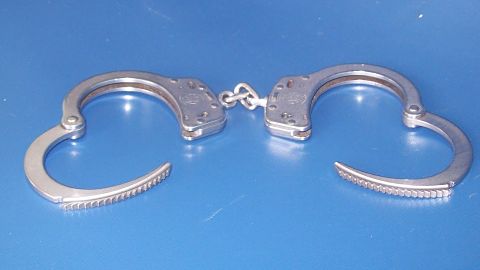Costa Rica News – Corruption and abuse of power has become rampant in the Costa Rica Police Force in the recent years. Especially with the surge of US and other foreign nationals coming in to this beautiful Latin America country, everyone, including the police force, sees this opportunity to “make some money” and abuse their power.
Police car chases and barricades look a lot like the heart-pumping scenes from the Fast and Furious movies, but why do we always expect such scenes to put the stereotypical bad guy in jail?
What does a criminal look like? Nobody would dare say “wearing a uniform, carrying a loaded gun, and drives a police car”. Over the last 5 years, studies have shown that out of the total crimes reported, an average of 6% directly involves police corruption and abuse, while 94% of the total crimes reported involve theft, homicide, fraud, drug and alcohol related crimes, and others.
How much of these crimes involve the support of the police force? Every day, someone in Costa Rica experiences abuse of power by the police force. Although the Office for Assistance of Victims has a victims and witness protection program that include death and injury assistance, the program proves to be ineffective. Either ticos get the runaround when they file a complaint against the police, or they’re scared to report the incident at all. If you’re a local, you won’t dare to report the abuse, risking your life by telling them who you are and where you live. If you’re a tourist, you’d rather let the incident pass so you can get back to relaxing while on vacation.
 In 2012, there were more than 2,000 complaints filed against the police. That averages to 6 incidents per day. Corruption and abuse of power by the Costa Rican Police Force come in many form, shapes, and sizes. The most common is bribery.
In 2012, there were more than 2,000 complaints filed against the police. That averages to 6 incidents per day. Corruption and abuse of power by the Costa Rican Police Force come in many form, shapes, and sizes. The most common is bribery.
It is the most convenient way for a violator to escape charges and prison time, and a way for the police force to earn extra money. Drug dealers know exactly who to bribe in the police force. They know who are assigned to certain areas and bribe them on a regular basis to allow their illegal activities to take place. Police officers know that such transactions involve a lot of money and they take this form of abuse to the next level by negotiating for a higher bribe. It is considered “protection money”, to protect the dealers and their businesses.
Road violators also bribe police officers to get away from a ticket. When a police officer spots a nice car, even if the driver did not violate traffic rules, he pulls him over and tells the driver of his violation. Speed limit violation, the most common, means that you won’t get a ticket if you pull out your wallet and hand over some money. If you happen to be a tourist, you may have to give the officer as much as 50 to 100 USD, depending on the offense.
Many complaints have also been filed against the police forces involving violation of human rights. It is old news that police officers beat up prisoners, even detainees that have not been charged for a crime. Officers are also known to make suspects admit to a crime by using force. There are also incidents of rape done by officers to women detainees. These complaints are often thrown out the window, since criminals do not make credible witnesses and victims.
Another form of abuse by the police forces, and is a very disturbing reality, is to hire a police officer to kill. For the right amount of price, and I mean a hefty sum, some police officers are willing to strip off his uniform, put on a wolf’s skin at night, and use his gun to kill someone. Naturally, the complaint or report filed by the victim’s family will also be neglected by the same people who did the crime.
There are many reasons to ask help from the police, and there are even more reasons why we shouldn’t. Can we really trust or entrust our lives to the Costa Rica Police Force? We expect them to uphold the law that protects us from the bad guys, but they’re the first ones to break the rules.
Some people argue that the wages of police officers are too low thus getting themselves involved in such corruption. While we are absolutely incapable of totally removing corruption in the police force, the government should diligently act on cases filed against them. In most other countries, officers are dishonorably discharged from the force, serve jail time, and pay damages to victims. In Costa Rica, paid suspension is normally the sanction that an officer will serve if proven guilty of any form of abuse and corruption.
The only way to this problem is going to be fixed is if this officials are held accountable for their actions, the problem is there is no accountability at any level of Costa Rican government. With the low salaries paid to police, zero accountability, laughable sanctions when caught participating in corrupt or unethical acts, and an attitude of it is not a crime unless you get caught there does not seem to be an end in sight for this problem in Costa Rica.

